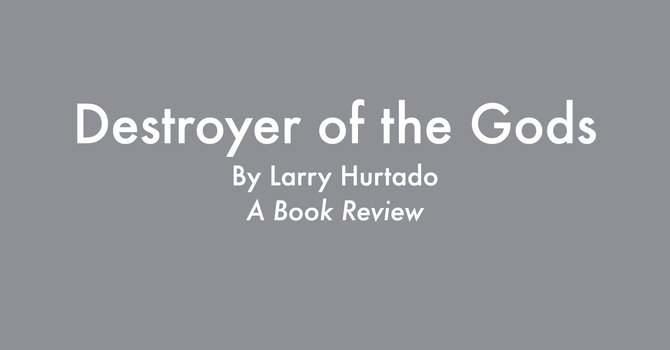When it comes to choosing a good book to read, the possibilities are (almost) literally endless.
The Library of Congress, in Washington D.C., houses almost 18 million books. To add to this, almost 200 hundred thousand more titles are added every year.
This means that in 50 years, there will be another 10 million works available to read.
Adding the 18 million and the 10 million coming in the next 50 years, there will be 28 million books for the modern reader to peruse over the next fifty years!
If you were a particularly voracious reader capable of reading about 2600 books in your lifetime, for every 1 book that you read, there are another 10,000 you are not reading!
If you are an avid reader, I understand the emotional turmoil this causes. Isn’t it obvious? You don’t have time to read bad books!
So, with the paralysis of choice, what books would I recommend to you?
Here are my 5 favorites of 2017:
5. The Power of People Skills by Trevor Throness
Sure, I have a little bit of a bias with this choice.
Trevor is my uncle and coaches Executive Leadership Teams in fast-growing, successful companies. He has coached me over the past few years and has added immense value to my leadership skills on the topics of team leadership, strategic planning as well as building and keeping high capacity teams.
I believe that marketplace leaders have much to offer to church leaders, and Trevor does not disappoint with his book. He offers practical ways to help assess your team, get the right people in the right seats and create a culture in which you attract and retain the best people.
Keeping your dream team together is one of the most difficult aspects of church leadership, and Trevor offers ways forward to navigate these tough situations. For instance, do you know how to challenge the underperformers on your team? Or, how to get the best out of your star employees? Trevor addresses these important topics in the book.
If you lead teams, I would recommend buying a few copies and going through the book together.
4. Sources of the Self by Charles Taylor
This is by far the densest read of this list. Taylor, a Catholic philosopher from McGill University, expounds on the location of the moral good for the modern person.
How did we get to the place where our search for the moral good ends with ourselves? Taylor offers an intellectual history of the building blocks of the modern identity.
This book helped me understand modern worldviews and brought precision in diagnosing the dominant ideas and worldviews of our culture. For example, Taylor traces how we have gone inward to find the moral good. He says, “We go inward, but not necessarily to find God; we go to discover or impart some order, or some meaning or some justification, to our lives.” This inward journey is the mantra of our culture.
It is a demanding read, but one that I often cite, either directly or indirectly, in my preaching and teaching opportunities.
If you take the time to thoughtfully engage, you will be invariably enriched.
Interested in more of Taylor’s thinking? I summarized another one of his books here.
3. Making Sense of God by Tim Keller
I don’t think I have ever read a poor Tim Keller book, and Making Sense of God lived up to my expectations. Keller has a masterful way of combining deep scholarly research and content with practical and devotional applications.
Keller comments that Making Sense of God is the prequel to his best-selling book The Reason for God as it deals with all the underlying assumptions and questions of the secular person. The Reason for God deals with the intellectual stumbling blocks to Christian belief, like reconciling God and the reality of evil, while Making Sense of God focuses on the emotional and cultural components such as the belief that science is eclipsing religious belief.
I found this book to be thoughtful, thorough and convincing. Not only is Keller an introspective author, he is also a trusted voice. His character, leadership, and passion for the Church and its renewal in North America is inspiring.
This book should be on your shelf.
2. Reformed Theology by Michael Allen
This is the best theological book I read in 2017. I finished my Master’s degree in July of 2017, and as an elective, I took a course on Reformed Theology, Spirituality and Thought. This book was the required reading.
Allen, the instructor for my class and a current Professor at Reformed Theological Seminary, does a remarkable job articulating a clear synopsis of Reformed thought.
I found the book helpful as I interact with people who have questions about Reformed theology. The thinking of the 16th-century Reformers, unfortunately, gets reduced down to acronyms, which does an enormous disservice to the breadth of thought from the leaders of the Protestant Reformation.
If you’re interested in Reformed theology or just looking for an accessible theological work to sharpen your understanding of this pivotal time in theology, this is the book for you.
1. You are what You Love by James K.A. Smith
This book takes the top prize without a doubt. Smith, a philosopher from Calvin College in Grand Rapids, outlines how the practices and habits of our lives have more to do with our affections (what we love) than anything else. He has helpful chapters on family life, children and youth, cultural liturgies we all are shaped by (often unconsciously), faith and work.
So, while you may have a desire to be a spiritually healthy person, he asserts that you need to recount the habits of your life (or liturgies as he calls them) as they shape you more than anything else.
Driven by the Augustinian thought that what we love the most shapes us the most, Smith helps spread light on some of the reasons why you may be feeling spiritually dry.
For instance, one habit I had in my life that was contributing to my spiritual malaise was the incessant noise of the television. Every morning, while eating breakfast, the morning news would be running in the background while my family would eat breakfast together.
Instead of having the opportunity to spend time talking and reading Scripture together, we would be attentively taking in the nonsense that dominates cable news broadcasts. This liturgy, or habit, instead of drawing us closer together and to God, would drive us further from Him and each other.
This is an insightful book that should find its way onto your bookshelf.
Which books will you read 2018?
With one year gone, comes another and new opportunities to read broadly, thoughtfully and vigorously.
Which books are on your list to read in 2018?



